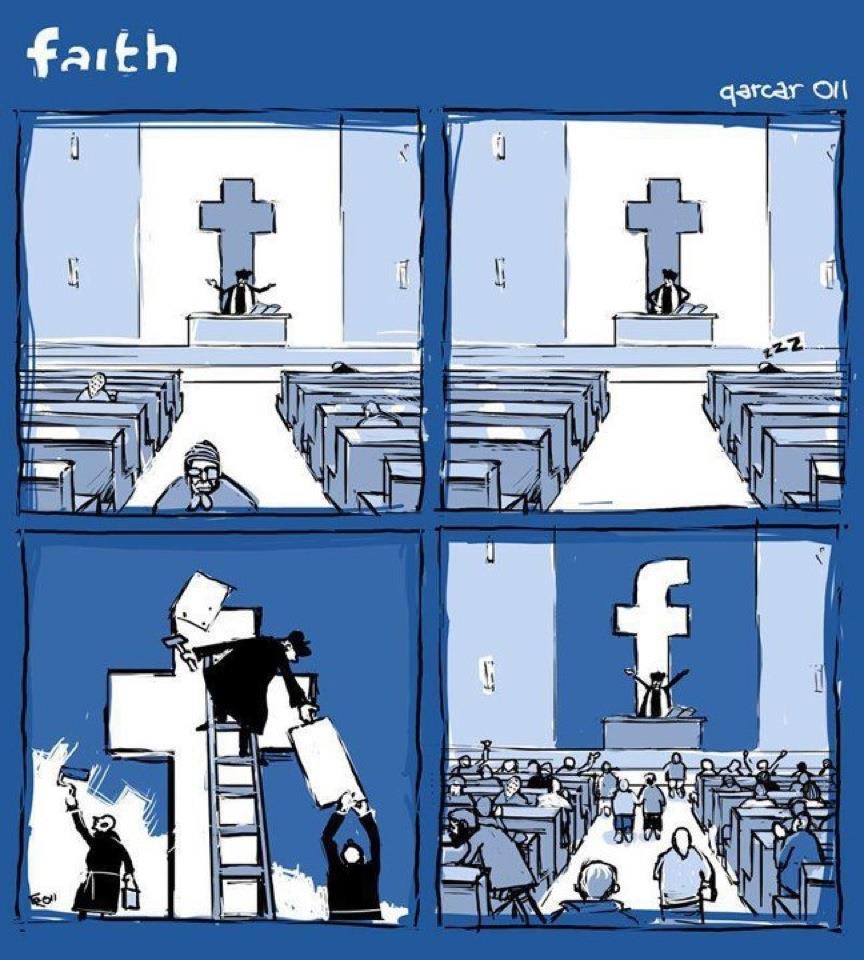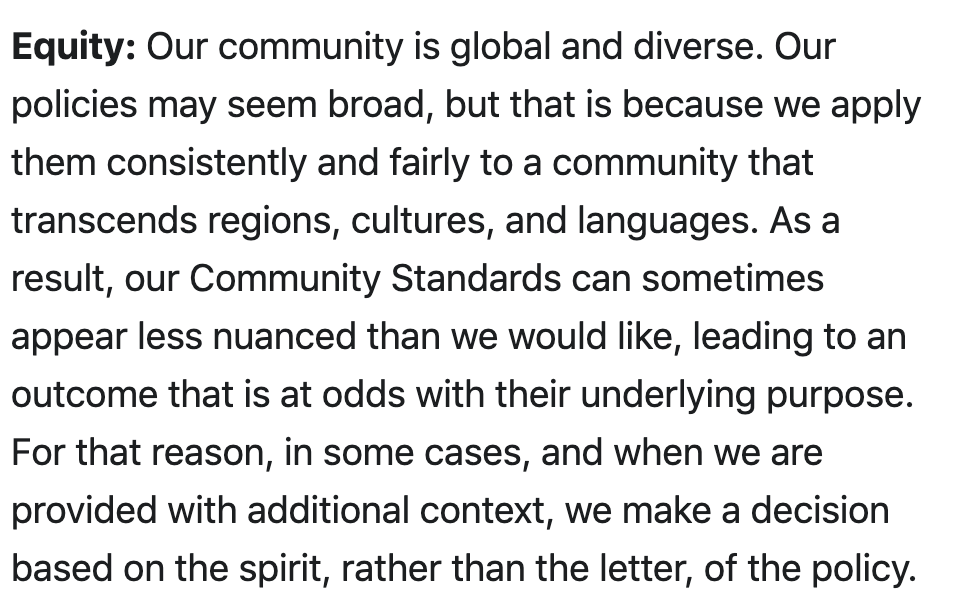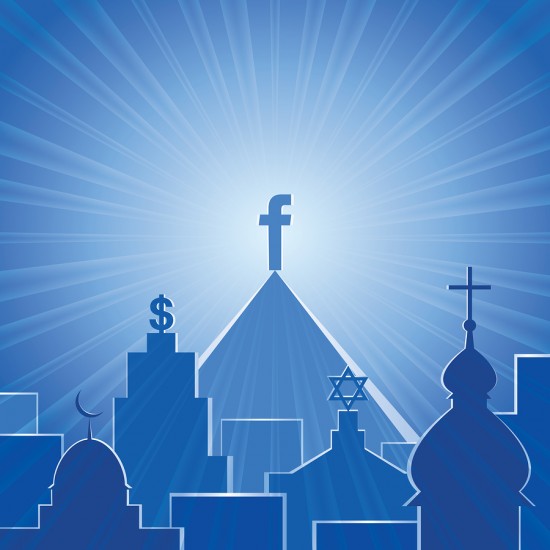
Facebook has finally released a detailed explanation of its elusive and heretofore ill-defined “community standards,” but a curious line used by the company takes Christian language found in the Bible and appropriates it for adherence to Facebook’s political correctness guidelines.
Facebook’s appropriation of biblical terminology is leading some to wonder if the company is merely being sacrilegious or if Facebook itself has a God-complex, and considers its community standards to be the same as Sacred Writ.
Many people have found themselves banned from using the social media company for anything from a few days to a month or more, merely for violating “community standards” of Facebook. However, Facebook has not defined exactly what those standards are or how they reach their conclusions other than in the vaguest of terms.
Facebook has now more carefully defined what is and is not acceptable speech and which thoughts its customers are allowed to express.
The tension between free-thought and censorship comes from Facebook in their stated goal of “encouraging expression and creating a safe environment.” Ostensibly, Facebook has to curb some expression to make it a truly “safe” space.
Facebook says in their newly published community standards, “We are committed to removing content that encourages real-world harm, including (but not limited to) physical, financial, and emotional injury.”
So…a safe space for snowflakes, it is.
Sticks and stones can break my bones, but words will be censored by Facebook to ensure I’m not emotionally injured.
There’s not exactly a ring to it.
Under the heading of “Equity” (which is a part of the Diversity, Inclusion, Equity Movement or D.I.E. Movement for short, a popular leftist paradigm through which modern progressives and cultural deconstructionists are trying to reshape our world), Facebook uses a curious phrase from the Holy Bible to refer to its “community standards.”

Facebook actually quotes 2 Corinthians 3:6, a Bible verse from Paul’s second letter to the church in Corinth.
Facebook claims that they hold to their standards somewhat subjectively and aren’t beholden to their written policies. To defend this capricious and arbitrary (and often biased) ignoring of their own rules, they say, “We make a decision based on the spirit, rather than the letter, of the policy.”
“We make a decision based on the spirit, rather than the letter, of the policy.”
This is an expression taken directly from the Apostle Paul.
Paul wrote, “[God] has made us sufficient to be ministers of a new covenant, not of the letter but of the Spirit. For the letter kills, but the Spirit gives life.”
The Apostle’s message to the Corinthian church was asserting that the “letter of the Law” (i.e., the laws of the Old Testament, which were literally written down) would be transcended by the spirit of the law, that is, a fulfillment of the Law’s real purpose as found in Jesus Christ. This “new covenant,” as spoken by St. Paul, is the foundation for the Christian religion and separates it from Old Testament Judaism.
This verse is centrally important to Christians and is of deep spiritual meaning. Christians believe ourselves to be saved by the New Covenant, as prophesied in places like Jeremiah 31 and spoken of in places like Paul’s reference here to the Corinthians.
Furthermore, this passage claims that God has made us ministers of this New Covenant, responsible for preaching it and making sure everyone knows about it.
So then, it is interesting that Facebook would use this Biblical terminology to refer to their mediation of so-called community standards.
Essentially, what the tech giant is saying is that ‘Facebook has made their employees ministers of a new covenant (i.e., “community standards”), not of the letter, but of the Spirit.’
Facebook is either being religious in its use of 2 Corinthians 3:6, or sacrilegious. There’s not another option. Do they see themselves as gods, or as mockers of God?
Facebook’s covenant with users seems quite different than God’s covenants with his People, whether the Old or New. Chiefly, Facebook’s standards outlaw thoughts, or the expression of those thoughts, based upon who they say have “protected characteristics”
Facebook says…
We define hate speech as a direct attack on people based on what we call protected characteristics — race, ethnicity, national origin, religious affiliation, sexual orientation, caste, sex, gender, gender identity, and serious disease or disability. We also provide some protections for immigration status.
Why does Facebook give these particular people a “protected” status? What is the objective, immutable, unchanging standard by which these particular traits are protected?
Standards are only standards, after all, because they don’t change. That’s what makes them standard.
Facebook’s Covenant is awfully capricious and finicky. They continue…
We define attack as violent or dehumanizing speech, statements of inferiority, or calls for exclusion or segregation.
In other words, Facebook can ban you at any time, for whatever reason, if you are anything other than a judgment-free person with zero personal standards and a laissez-faire moral attitude. Good to know.
Under the “Tier III” level of hate speech, Facebook says that it does not allow talk of excluding someone from “spaces” or “participation in events” because of their religion. Ostensibly, this means Christians cannot argue that Muslims should not take part in Holy Communion.
In the details, Facebook goes on to explain that you cannot call promiscuous women (or prostitutes) “whores,” you cannot call anyone a “pervert” based upon their sexual behavior, cannot refer to anyone as “ignorant” or “illiterate” (even if they are), and cannot call anyone a “freak” or “abnormal” on account of their gender-related bodily mutilation or crossdressing.
[Editorial: Perhaps Facebook needs to speak to a “higher power” of some kind to have their “community standards” blessed and notarized – or at least edited for some kind of logical thought patterns (if that’s even possible)…]
[Editor’s Note: This post was written by Jordan Hall and Gerry Brinkman.]











